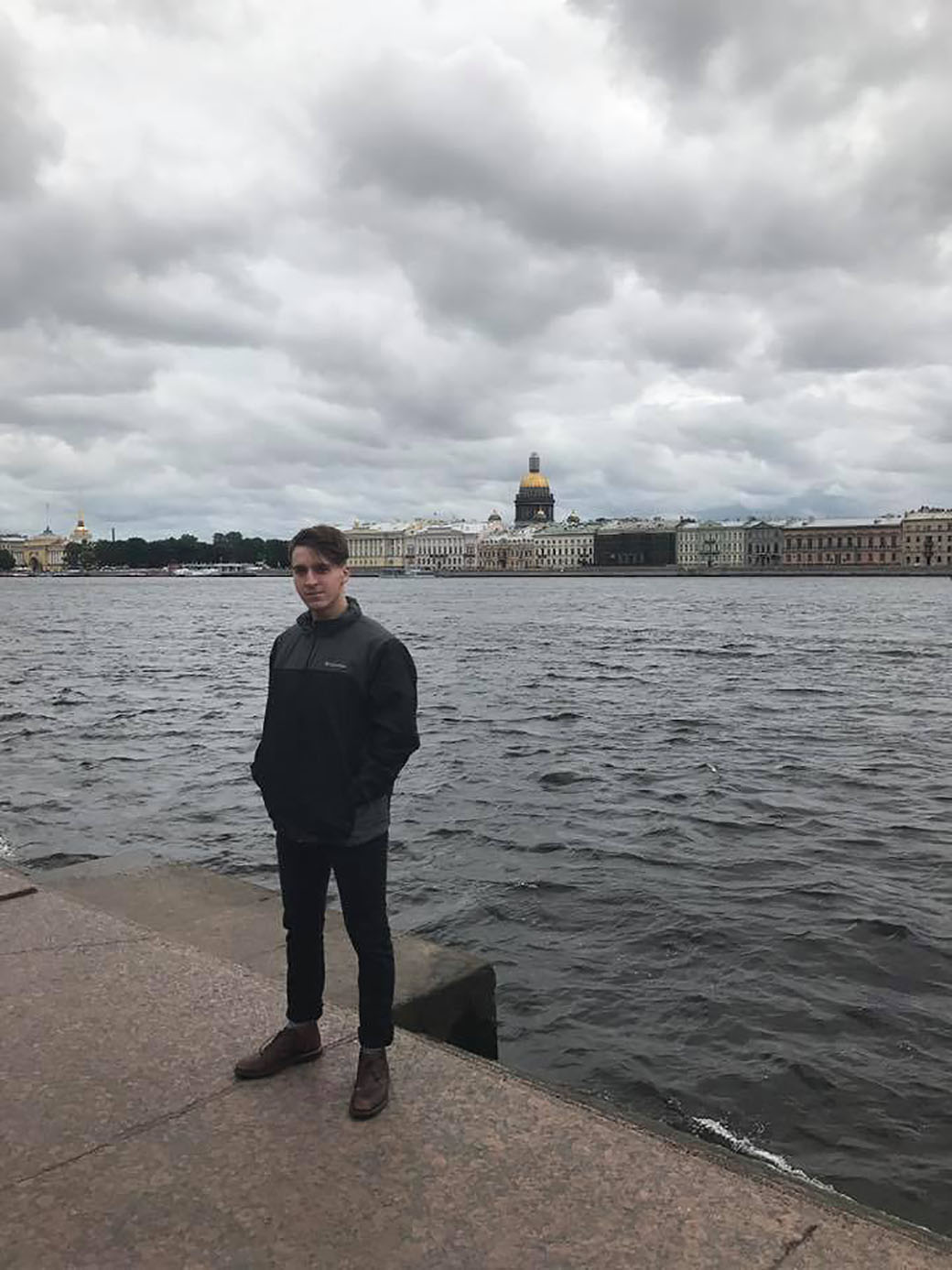
Sophomore studies abroad amid tensions with Russia
When choosing where to study abroad, sophomore international studies major Matt Colbert had his eyes set on Russia from the beginning.
Colbert said it’s been several years since a student from USD has studied abroad in Russia.
“I thought that when I told them I’d like to study in Russia, they’d be shocked and have to pull out a really old file, blow the dust off the top and say, ‘We’ll have to find out how to do this,’” Colbert said.
Adjusting to Russian norms
Colbert said his Russian classes are what got him interested in studying abroad.
“If I’m an international studies major and I’m studying the Russian language, it makes sense that I’d go and study abroad in Russia,” he said. “I think it’s a very good time to be educated in a country where things maybe might not be as 100 percent diplomatically sound.”
Colbert began classes in St. Petersburg at the beginning of September and will be studying in Russia until May of 2018. He’s living in a dormitory for students at St. Petersburg Polytechnic University.
He lives with other Americans, so it makes interacting with other Russian students tough, he said.
“Unfortunately I feel like I’ve felt a lot of isolation and I think that’s on account of Russia’s government as well as our government,” Colbert said. “It seems like their job has been to corral the Americans and keep them on the same floor, they’re all in the same classes. I really haven’t interacted with many Russian students.”
Back at USD, Jeickson Pichardo, a friend of Colbert’s, said he hasn’t talked with Colbert since his departure.
“I met Matt at the recruitment tours of the fraternity houses here on campus my first semester, and I then suddenly realized he was also from New Jersey and we clicked right away,” said Pichardo, a sophomore media & journalism major. “Of course, we have a whole lot in common because we come from the same state.”
While Colbert still takes Russian language courses in St. Petersburg, his elective courses are taught in English. He said this has made it hard to talk to Russian people.
“I haven’t really learned the trick of the trade yet because there’s a lot of cultural and social differences that make it hard,” Colbert said. “Generally in Russia, women shouldn’t smile at men because it could be suggestive that they’re into the man. But, of course, as Americans we’re smiley people and so happy. I’ve had to reserve my feelings and respect how they handle things.”
Out of his comfort zone
With news coverage of a possible Russian interference in the 2016 election last fall, relations between the United States and Russia have been tense as of late.
Virginija Wilcox, assistant director for USD’s Study Abroad and National Student Exchange programs, helped Colbert get in touch with his school. Compared to contacting other countries, Wilcox said orchestrating a study abroad trip to Russia was very relaxed and calm. She said it’s safer to go through a provider because everything is included.
“It takes care of your housing, transportation, meals and sometimes you can live with a host family who cooks you local, traditional meals,” Wilcox said. “You understand the culture better, and it’s tremendously helpful for your language because in most cases, they only speak the local language. Getting out of your comfort zone is important, and that’s what Matt’s doing.”
Colbert said he refrains from talking about politics with people he’s unfamiliar with as a safety precaution. His interactions with his Russian classmates have been positive so far, he said.
“I have spoken to a few Russian people, and what I would say is that I’ve received no anti-American sentiment. A few girls heard me speaking English and they were so overwhelmed, they asked where I was from,” Colbert said. “They were so excited to just talk to me, and that’s the most common thing. People are starstruck.”
Colbert said he’s always on his toes and using his instincts. This is because of the very small difference in cultures between the two nations. Simple acts like going to the grocery store are much different, he said.
“I’m using my brain more than I ever have for the longest amount of time. In America, you can go to the store, check out, go eat at a restaurant and go home without really thinking,” Colbert said. “But in Russia, I have to use my brain all the time because I can’t afford not to. I have to think about what’s happening, where I am, what I should do, what I shouldn’t do, when I should say things and what I should listen for.”
Though being away from home is hard, Colbert said he believes the experience is rewarding.
“It’s so much easier to live in America,” he said. “This has been a challenge for me, but that’s good. I don’t think comfort is always the best thing.”

